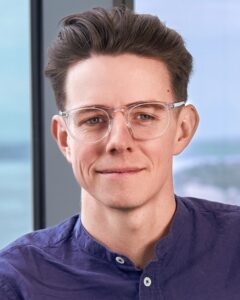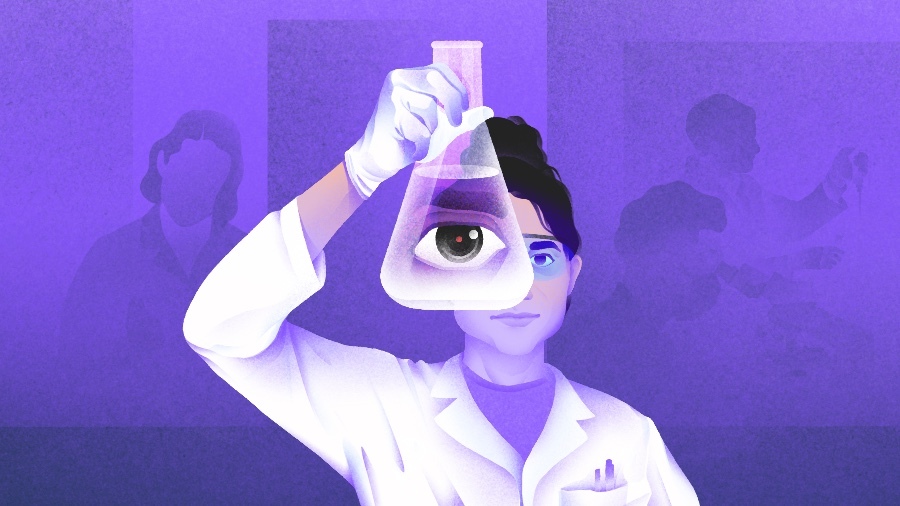caleb appleton
Having been investing in the biotech space since before it had a name, I believe that life science investors steer founders into pipelines of therapeutics in hopes of securing payment for successful drugs and medical devices. I’ve seen it.
But with high rewards comes even higher risks. A 90% failure rate in clinical development means that there is a very high probability that one failure can destroy the entire value of a company. Given that the global pharmaceutical industry is worth $1.6 trillion, even a small improvement in failure rates would significantly improve economic productivity and patient impact.

While there is no denying that therapeutics offer a desirable path to great benefit and profound impact on humanity, we cannot continue to ignore alternatives. The most reliable and untapped business models are the tools and services that drive this field forward.
Eric Schmidt, long-time CEO of Google/Alphabet and founding partner of my previous company, Innovation Endeavors, famously said, “Profit solves every known problem.” Ta.
Recurring revenue with high gross profit margins allows companies to decide their own destiny, including choosing when and whether to build riskier product lines such as therapeutic drugs. It also enables unit economics to achieve high multiples, and as a result, reduces dilution of the founding team. And while preclinical therapy businesses must convince professional investors that their hypothesis holds, the platform can quickly iterate on products to demonstrate real product-market fit.
Below is a framework that biotech founders can use to decide whether to market their platform to others or leverage it to develop their own therapeutic assets.
Is this platform uniquely enabled or widely useful?
Just as SpaceX’s launch capabilities are enabling the entire space technology industry, when Illumina began offering sequencing technology, the industry realized that affordable, accurate sequencing was the key to nearly all biological research and development. It was believed that it could support the initiative. If Illumina had only used it to perform internal GWAS research and drug development, it is unlikely that it would have reached its $80 billion market cap.
Does the market currently see value in this tool or does it need to be educated?
Without ubiquitous adoption, complex platforms are better suited for in-house drug discovery. Eikon Therapeutics, a unicorn company I previously seeded and backed, fits this bill. Techniques for tracking single molecules are very useful in understanding protein dynamics, but they are very difficult to interpret. Spatial biology is another emerging tool, and the sheer volume of data and initialization of the field requires a dedicated team, and it’s better to build on it than to sell it.
Is there a business model that supports the technology?
Investors are concerned about the combination of technical and go-to-market risks. Pharmaceutical companies are not accustomed to large-scale SaaS or contract spending, but expect to spend on services and partnerships. Winning companies understand how to leverage these purchasing behaviors to their advantage. A recent success in building a derivatives business model is Alloy Therapeutics, which provides non-exclusive biologics discovery services and earns large payments and margins without getting caught up in late royalty and milestone negotiations. I’m doing it.
what is your superpower?
Just as product-market fit is important, so is the fit between founders and business model. It’s unfair to ask consumer app founders to become successful in enterprise SaaS, just as it’s unfair to ask technology builders to become proficient in drug discovery overnight. Founding teams should rely on their superpowers, and if that’s building technology, they’ll probably also be selling technology.
While the life sciences industry has long supported high-stakes therapeutic ventures, the time is now to embrace resilient, revenue-generating models that improve treatment success rates.
Caleb Appleton is a Principal at Bison Ventures, focused on investing in biotechnology and AI applications in the physical world. Previously, he was a frontier technology investor at Innovation Endeavors focused on surgical robotics, drug discovery, next-generation hardware, and applied AI. He most recently spent two years as senior vice president and general manager at TuneIn, a growth-stage portfolio company, and began his career at Bain & Co.
Illustration: Dom Guzman




Stay up to date on recent funding rounds, acquisitions, and more with Crunchbase Daily.
